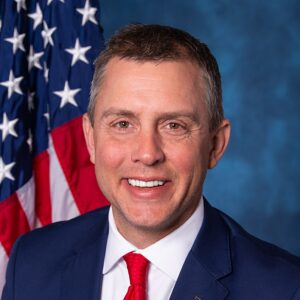President Joe Biden’s decision to approve the ConocoPhillips Willow Project in Alaska’s National Petroleum Reserve sparked the usual debate between economic development and environmental concerns. According to media reports, some progressives inside Biden’s own White House opposed the deal.
But for retired Maj. Gen. Spider Marks, former commanding general of the U.S. Army Intelligence Center, there is a bigger issue at stake: National security.
“If we are not energy independent, we become unreliable partners globally,” Marks told participants at a recent panel on energy policy hosted by the GAIN Coalition (Grow America’s Infrastructure Now) just days before Biden’s decision was announced.
GAIN’s spokesperson Craig Stevens, a former Energy Department official, said Biden’s move “will help strengthen America’s global energy leadership at an ideal time – as our allies in Europe increasingly rely on U.S. energy.”
The panel also featured U.S. Rep. Kelly Armstrong (R-N.D.); Patrice Douglas, former chairwoman of the Oklahoma Corporation Commission; and Brigham McCown, former acting administrator of the Pipeline and Hazardous Materials Safety Administration.
Armstrong, who serves as vice chair of the House Energy Committee, said he frequently invites people to his home where, within a 20-mile radius, they will find an “all of the above” energy strategy in place. North Dakota has invested in the infrastructure to support various fossil fuels, as well as renewable sources.
But it is the role energy production plays in global politics and national security that garnered the most attention. Both Armstrong and Marks referenced the South American nation of Guyana, where a recent offshore energy find is on the verge of making it one of the wealthiest countries per capita on the planet.
“Look at the region. You have Venezuela and you have Colombia. You have a lack of U.S. influence in that part of the world. But you have no lack of interest from Russia or China. This is an area where the U.S. needs to be very active,” Marks said.
And yet, added Armstrong, while Guyana’s Vice President Bharrat Jagdeo recently told reporters that they are “in a mad rush to get this done” before pledges to slash fossil fuel use come due in 2050, America continues to block domestic energy projects.
“You stick a shovel in the ground, and you kill an earthworm – you’re in 17 different environmental lawsuits all across the spectrum,” Armstrong said of the U.S. He added that he will be traveling to Guyana soon with just one question in mind: “Will U.S. companies be involved [in this production], or will we cede that area to the Chinese and Iranians?”
Other panelists echoed Armstrong’s concerns about the growing delays for energy projects.
Douglas, a former mayor of Edmond, Okla., said the average filing for an environmental impact statement on an energy project is 661 pages. That does not count responses companies must make and other required filings. The process can take an average of four to six years, and the federal government will sometimes invite states with heavier regulatory burdens to impede projects.
The law used to slow down development–the National Environmental Policy Act (NEPA)–is more than 50 years old and does not account for technological advances made in that time Douglas said, calling for NEPA’s modernization.
“It’s hard to produce enough natural gas when you’ve blocked pipelines, when you’ve quit federal drilling, when you allow repeated reviews of pipelines that have been approved by the Corps of Engineers and every state entity,” she said.
McCown, who served as chief executive of the Alyeska Pipeline Service Company that runs the Trans-Alaska Pipeline System, said pipelines–a frequent target of environmentalists–are an extremely safe and efficient transportation system.
“We spill more gasoline at gas station pumps than we do through pipelines each year,” he said, adding that pipelines have been proven to be 99.999952 percent safe.
The “keep it in the ground crowd,” though, has become more aggressive in shutting down U.S. projects, much to the confusion of European countries who recognize that a “well-integrated pipeline network lowers the overall cost for all consumers,” McCown said.
Some opponents of increased fossil fuel production say sanctions on bad actors like Russia and Iran can provide the geopolitical leverage America needs, but Marks said the record proves otherwise.
“We thought the sanctions might be able to alter Russia’s activity,” Marks said. Instead, opponents of Russia’s invasion of Ukraine have seen “no incentive” that has forced Russian President Vladimir Putin’s hand. “That majority of the world is not participating in these sanctions. The usual autocratic nations – they’re [sidling] up to China and taking their lead.”
Stevens said Biden’s approval of the Willow Project is a win for national security, but it “also highlights the urgent need for permitting reform. The Willow Project was held up in bureaucratic red tape for nearly five years. This unnecessary delay was punishing for the communities in Alaska that needed the influx of jobs and revenue.
“I encourage the administration to look for opportunities, such as the Willow Project, to strengthen U.S. energy security,” Stevens said.


